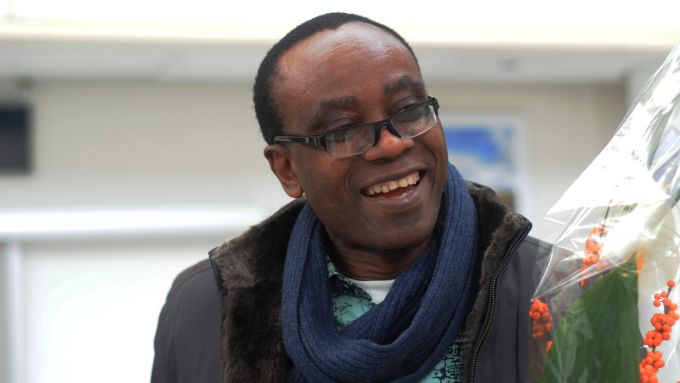Nnimmo Bassey, Director, Health of Mother Earth Foundation (HOMEF), at the FishNet Community Dialogue at Makoko in Lagos on Monday, July 24, 2017, says it is time to keep offshore oil untapped in order to curb pollution and save the source of livelihood of fisher folks

There must be a time when we sit back to reflect on the things we take for granted in order to avoid being taken by surprise when such things disappear. No one bothers to answer a question on what one would do if the water well runs dry. Probably, the answer would be to dig another well. If that one dries up too, you simply keep digging new ones. The colour of the question changes when we ask what would happen if the ground water over an entire territory is polluted and you set about digging wells there. The answer is that no matter how many wells one digs, one would end up with polluted water.
Today over 6.5 million Nigerians are engaged in fishing. Most of these fisher folks live on riverine communities along our 850km coastline – without public utilities, no schools, no health centres. Is that situation different here in Makoko? Was it different at Otodo Gbame before the bulldozers set in April 2017 and set hopes and dreams on fire? Was it any different in Maroko before the fisher folks were forcibly displaced in July 1990 and exclusive neighbourhoods emerged from the swamps?
Oil has been found offshore Lagos. As is the case with every offshore location around our continent, security forces bar fisher folks from getting anywhere close to the oil platforms.
The offshore locations in the Niger Delta are very active – with productive oil fields and rampant oil spills. As we speak, fishing communities at Ibeno in Akwa Ibom State are lamenting the impact of yet another oil spill. They complain of fishing grounds being damaged and their fishing equipment being destroyed by the spill.
The combination of security cordon and oil spills places our fisher folks at a very disadvantaged position. The only option for many fisher folks is to go into the high seas before they can hope to have a good catch. The question is: how many fisher folks can afford the boats and equipment needed for fishing in the high seas? How many can tango with the toxic combination of sea pirates and illegal international fishing gangs out there?
Today we are examining the state of our environment and the gifts of Nature around us. We are looking back at what living and fishing here was like some decades ago. We are also looking at the situation today, noting the changes that have taken place, identifying those factors that brought about, or are bringing about, the changes. Finally, we will prepare an action plan by which we hope to recover our ecological heritage and preserve same for future generations.
There must be a time when we realise that we cannot win all battles fighting alone. We must come to the point when we organise and connect to others in similar situations like ours. That way, we get to share ideas, pains, hopes and strategies.
Today is such a day. Fisher folks recently came together at Okrika Waterfront in Port Harcourt while others came together in kribi (Cameroon) and Durban (South Africa). The circle gets wider. Our FishNet Dialogues are opportunities to forge strong ecological collectives and to show the world that we have the adaptive solutions to the ravages of climate change.
Our floating homes are pointers to the future of Lagos as the seas reclaim the land that land speculators stole form the sea. We are the people. We are the solution, not the threat. The threat is our dependence on crude oil – the very resource that is firing global warming. Today we present a simple wisdom: it is time to keep offshore oil untapped. Today we present this simple incontrovertible wisdom: our wellbeing and that of the planet will best be preserved when we unite and say: Fish, not Oil.
